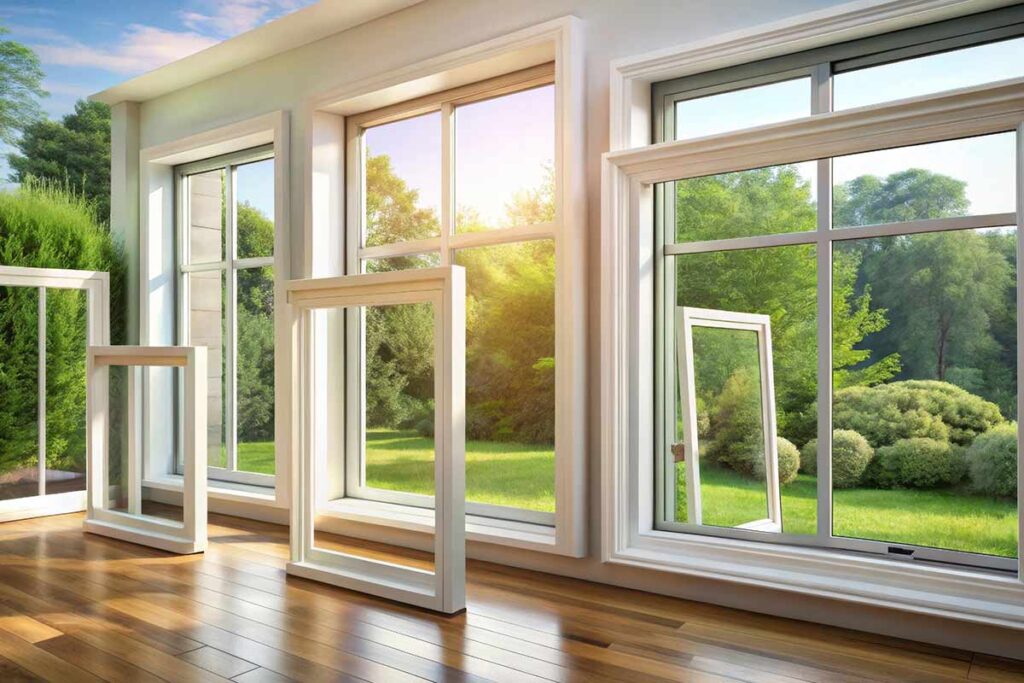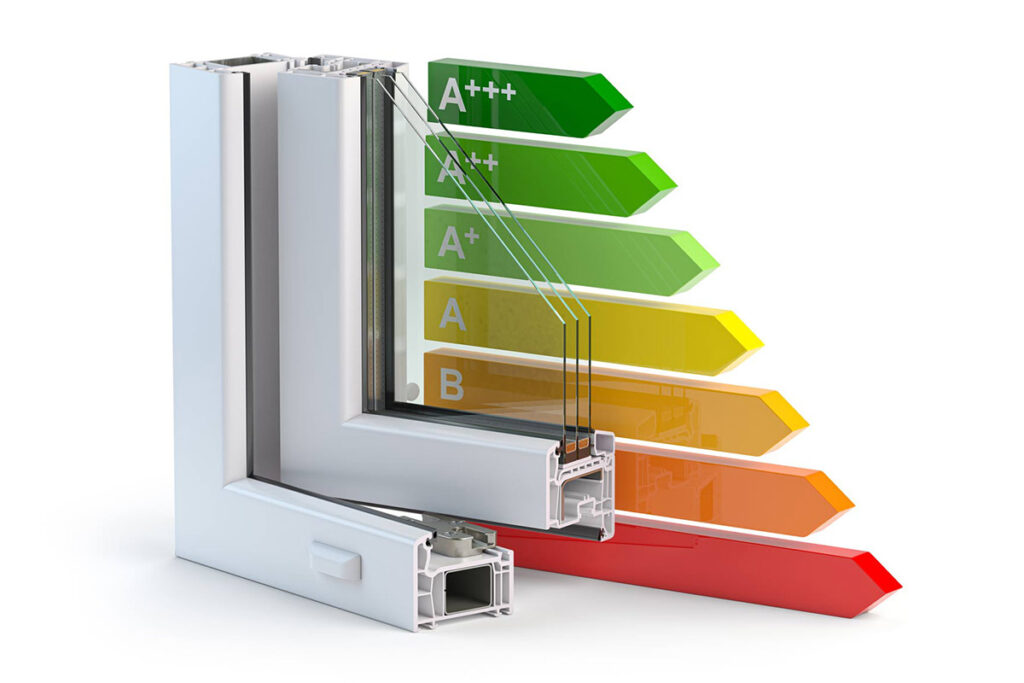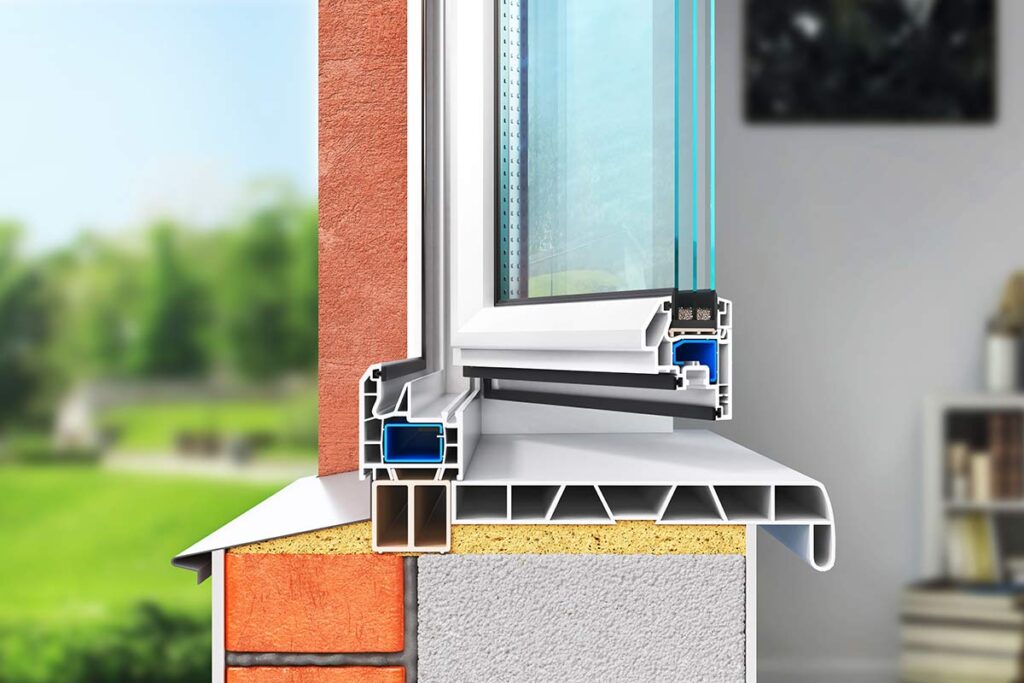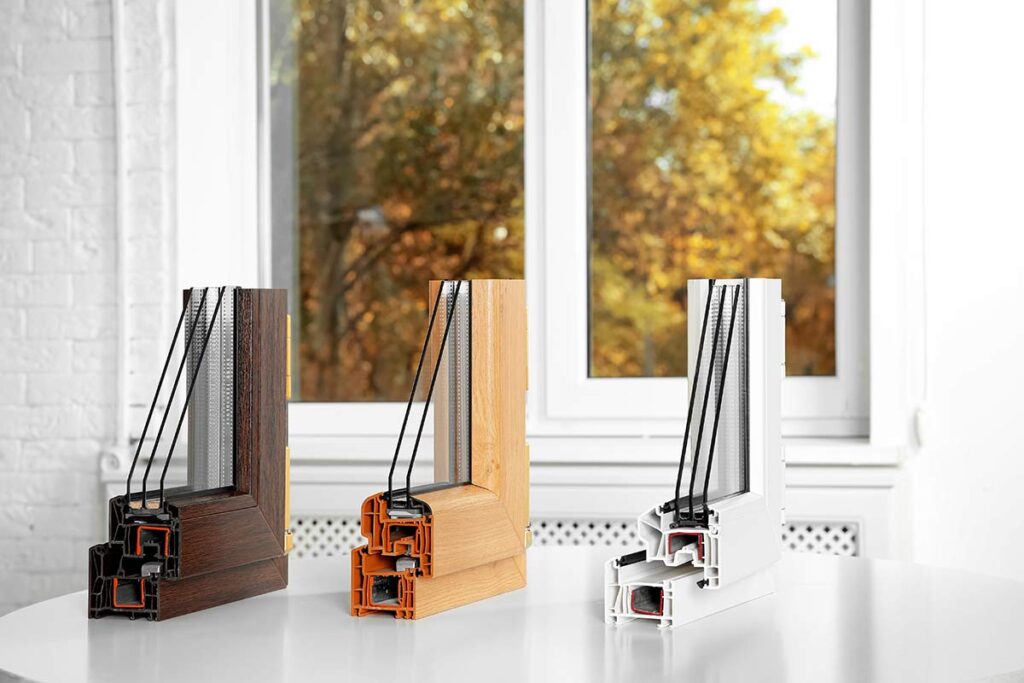
Table of Contents
ToggleWhen it comes to choosing new windows for your home, the decision between double glazing and triple glazing is a big one. Both options offer distinct benefits, and it’s crucial to understand which is the better choice for your specific needs. In this guide, we’ll break down the differences between double and triple glazing, touching on factors like energy efficiency, cost, soundproofing, and durability. By the end, you’ll have a clearer idea of which glazing option is right for you.
What Is Double Glazing?
Double glazing consists of two panes of glass with a layer of air (or gas) sealed between them. This gap acts as an insulator, helping to keep heat in during the winter and out during the summer. Double glazing has been the standard for window installations for years and is known for its energy-saving benefits.
Benefits of Double Glazing
- Energy Efficiency: Reduces heat loss from your home, lowering energy bills.
- Cost-Effective: Cheaper than triple glazing, making it a budget-friendly option.
- Soundproofing: Provides decent sound insulation, cutting down on outside noise.
- Condensation Prevention: Helps reduce condensation build-up on the inside of windows.
What Is Triple Glazing?
As the name suggests, triple glazing adds an additional pane of glass, totalling three panes with two insulating layers of gas or air between them. Triple glazing is designed to offer even better insulation than double glazing, and it’s often marketed as the superior option for energy efficiency and soundproofing.
Benefits of Triple Glazing:
- Superior Energy Efficiency: Offers up to 50% better insulation than double glazing, making it ideal for colder climates.
- Improved Soundproofing: Provides better noise reduction, perfect for homes in noisy areas.
- Added Security: Three panes of glass make it harder to break through, offering improved security.
- Durability: Designed to last longer, with less wear and tear over time.

Energy Efficiency: How Do They Compare?
Energy efficiency is one of the most important factors when deciding between double and triple glazing. Both options help to prevent heat loss, but triple glazing is undeniably more efficient. Thanks to the extra pane of glass and additional air or gas layer, triple glazing provides greater insulation, helping you keep your home warm in winter and cool in summer.
For homes in particularly cold climates, triple glazing can significantly reduce your energy bills. However, for the majority of homes in the UK, double glazing offers more than enough insulation to keep energy consumption down. The difference between the two in moderate climates may not be large enough to justify the additional cost of triple glazing.
Quick Takeaway:
- Double Glazing: Great for energy efficiency in most climates.
- Triple Glazing: Superior for homes in extremely cold areas.
Cost: Is Triple Glazing Worth the Extra Expense?
Price is often a deciding factor for homeowners. Naturally, triple glazing is more expensive than double glazing due to the extra pane of glass and the more advanced manufacturing process. If you’re on a tight budget, double glazing will likely be the more affordable option.
However, while the upfront cost of triple glazing is higher, the long-term savings on energy bills might make up for it, particularly if you live in a colder region. But for homeowners in temperate climates, the additional expense may not be worth it.
Quick Takeaway:
- Double Glazing: More affordable upfront, but still provides excellent energy savings.
- Triple Glazing: Higher initial cost but can save more on energy bills in the long run, especially in colder areas.
Soundproofing: Which Is More Effective?
If you live near a busy road or in a noisy neighbourhood, soundproofing is likely high on your priority list. Triple glazing has an edge over double glazing when it comes to noise reduction. The extra layer of glass acts as an additional sound barrier, making triple glazing the better option for soundproofing.
That said, double glazing still provides good noise reduction and is typically sufficient for homes in quieter areas. If you’re not particularly bothered by external noise, the difference between the two may not be noticeable enough to justify the cost of triple glazing.
Quick Takeaway:
- Double Glazing: Good noise insulation for most homes.
- Triple Glazing: Best for homes in noisy environments or near heavy traffic.

Longevity and Durability: Which Lasts Longer?
Both double and triple glazed windows are built to last, but triple glazing has the advantage in terms of durability. With an extra pane of glass, triple glazing is more resistant to wear and tear over time. This can be an important factor for homeowners looking to make a long-term investment in their home.
However, properly maintained double glazing can still offer a long lifespan, typically around 20-25 years. As long as you keep up with maintenance, double glazing is a solid option that will last you for decades.
Quick Takeaway:
- Double Glazing: Long-lasting but may require more maintenance over time.
- Triple Glazing: Extra durability with minimal maintenance required.
Security: An Added Benefit of Triple Glazing
When it comes to home security, every layer of protection counts. Triple glazing provides an extra level of security compared to double glazing. The additional pane makes it harder to break through the window, which can deter potential intruders.
That said, modern double-glazed windows are still very secure, especially when combined with robust window locks. If security is a top concern, triple glazing might give you peace of mind, but double glazing still provides excellent protection for most homes.
Quick Takeaway:
- Double Glazing: Secure and reliable for most homes.
- Triple Glazing: Offers an added level of security with the extra glass pane.

Conclusion: Double or Triple Glazing?
Ultimately, the choice between double glazing and triple glazing depends on your specific needs, climate, and budget. Double glazing remains a fantastic all-round option for most UK homes, offering solid energy efficiency, soundproofing, and security at an affordable price.
However, if you live in a colder climate or a noisy area, or if you simply want the best insulation and security available, triple glazing could be the better choice. While it comes at a higher upfront cost, the added benefits might make it a worthy investment in the long run.
Final Thoughts:
- Choose Double Glazing if you want a budget-friendly option with solid performance across the board.
- Choose Triple Glazing if you’re looking for top-tier energy efficiency, soundproofing, and security, especially if you live in a colder or noisier area.
FAQ
Triple glazing offers better energy efficiency and soundproofing, but the difference may not be significant enough in moderate climates to justify the extra cost.
If you live in a colder climate or noisy area, triple glazing can offer long-term savings and added comfort. For most UK homes, though, double glazing will suffice.
Yes, like double glazing, triple glazing also helps reduce condensation, but it’s not necessarily more effective than double glazing in this regard.
With proper maintenance, double glazing can last around 20-25 years, while triple glazing may last even longer due to its extra durability.
